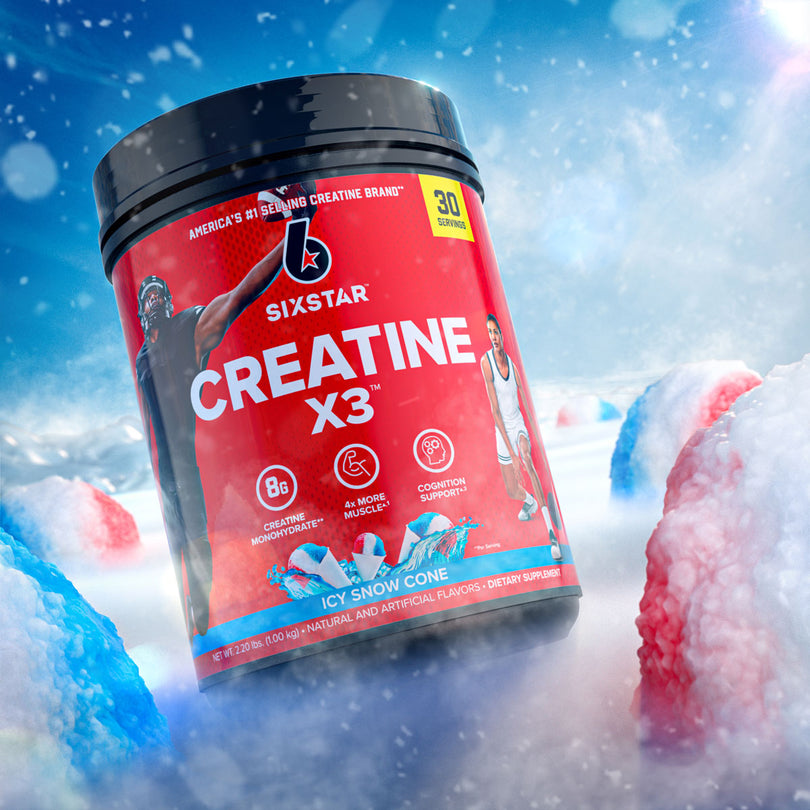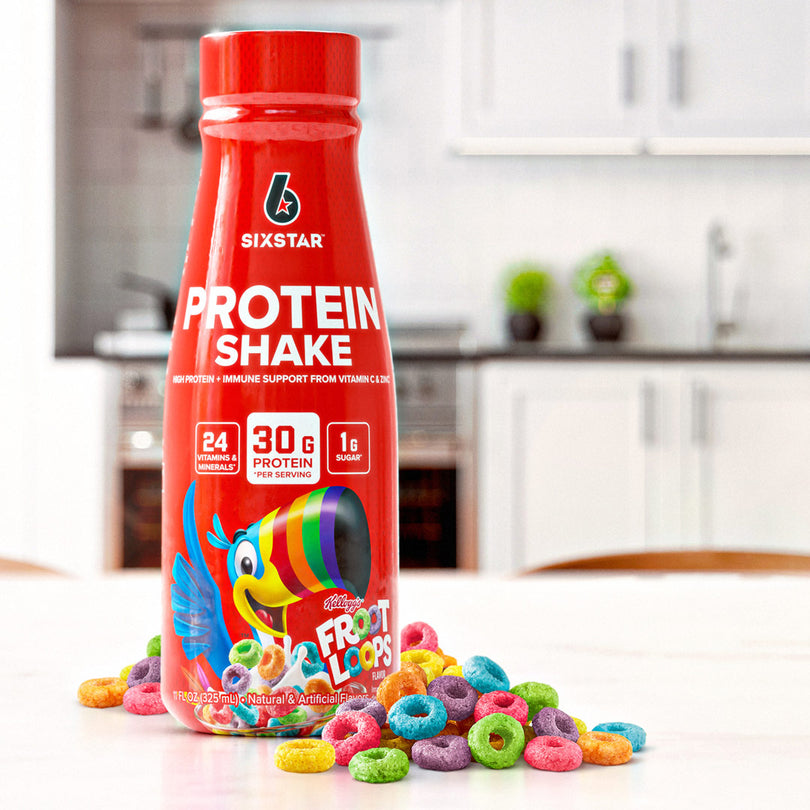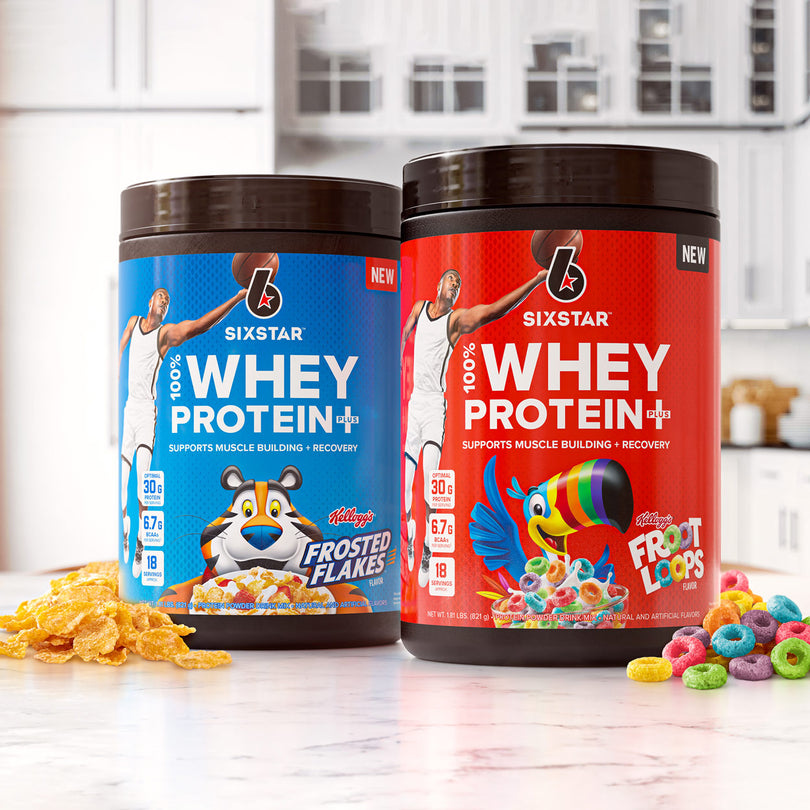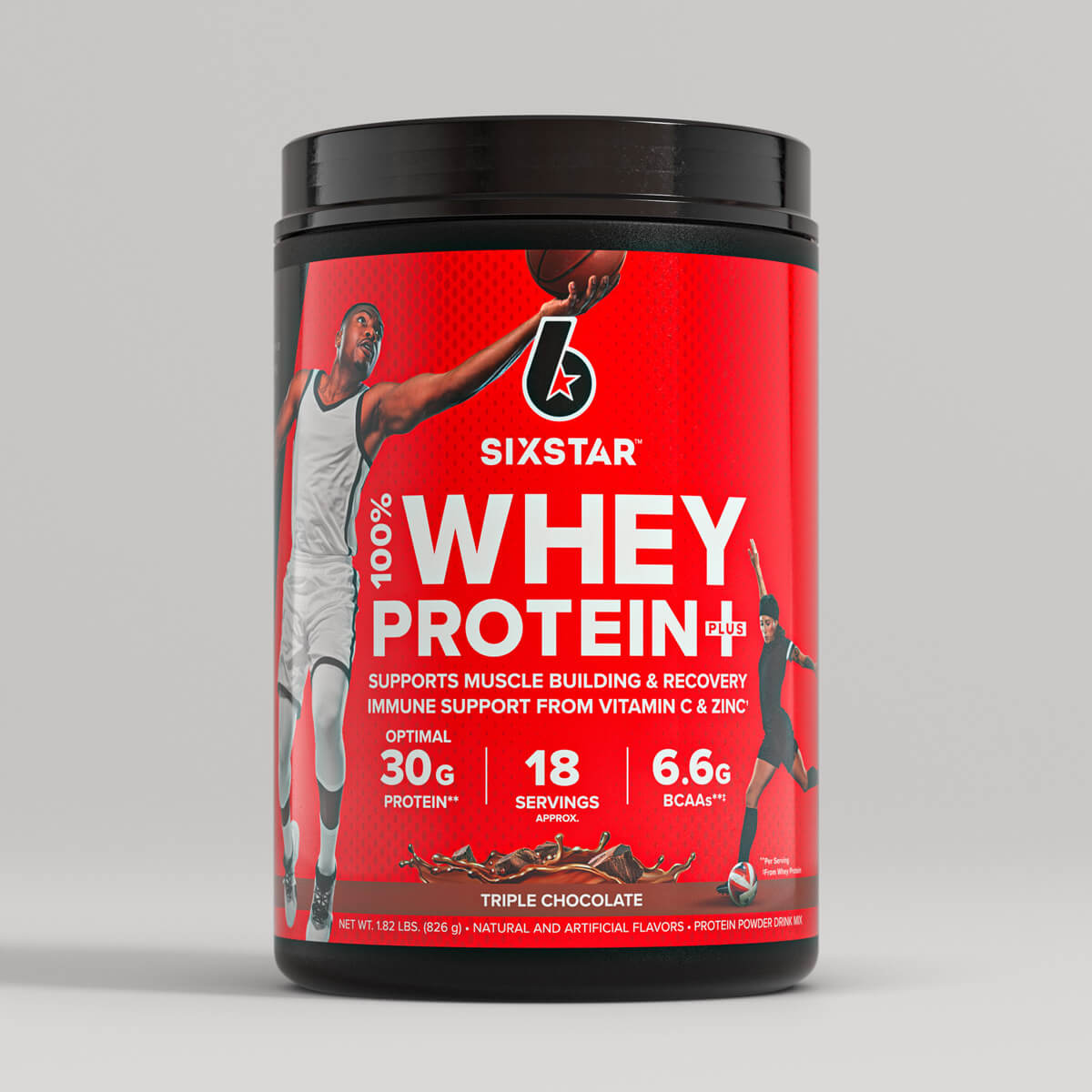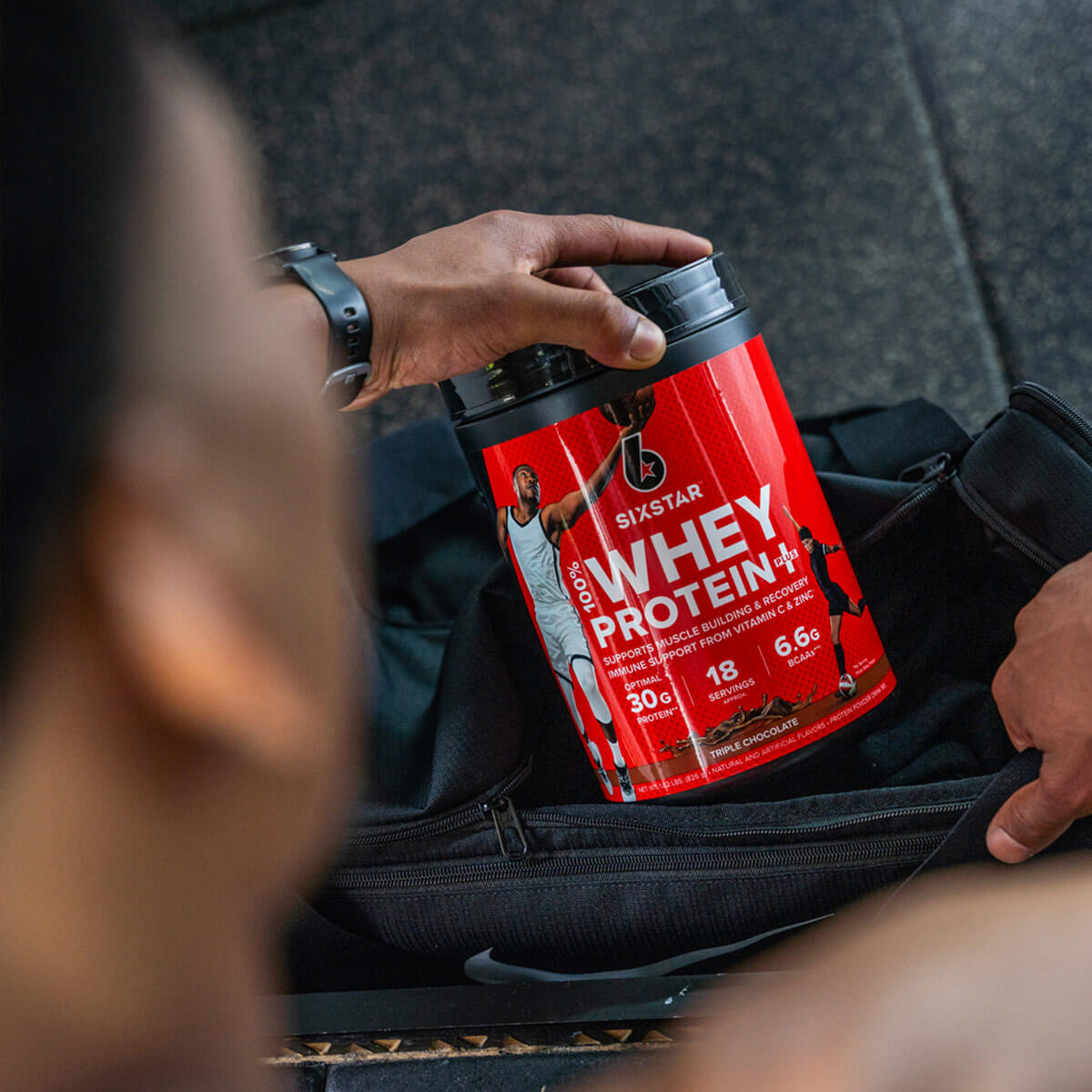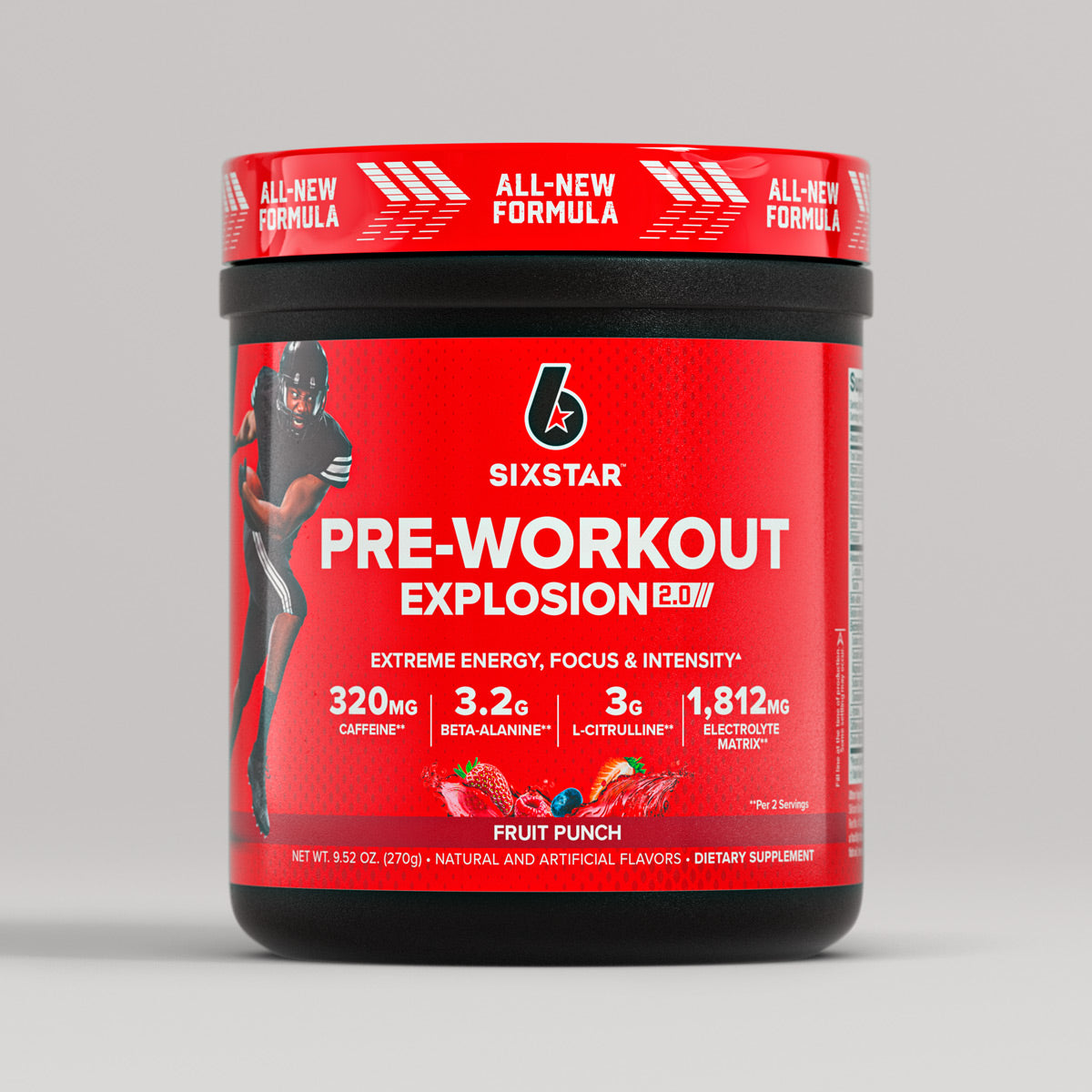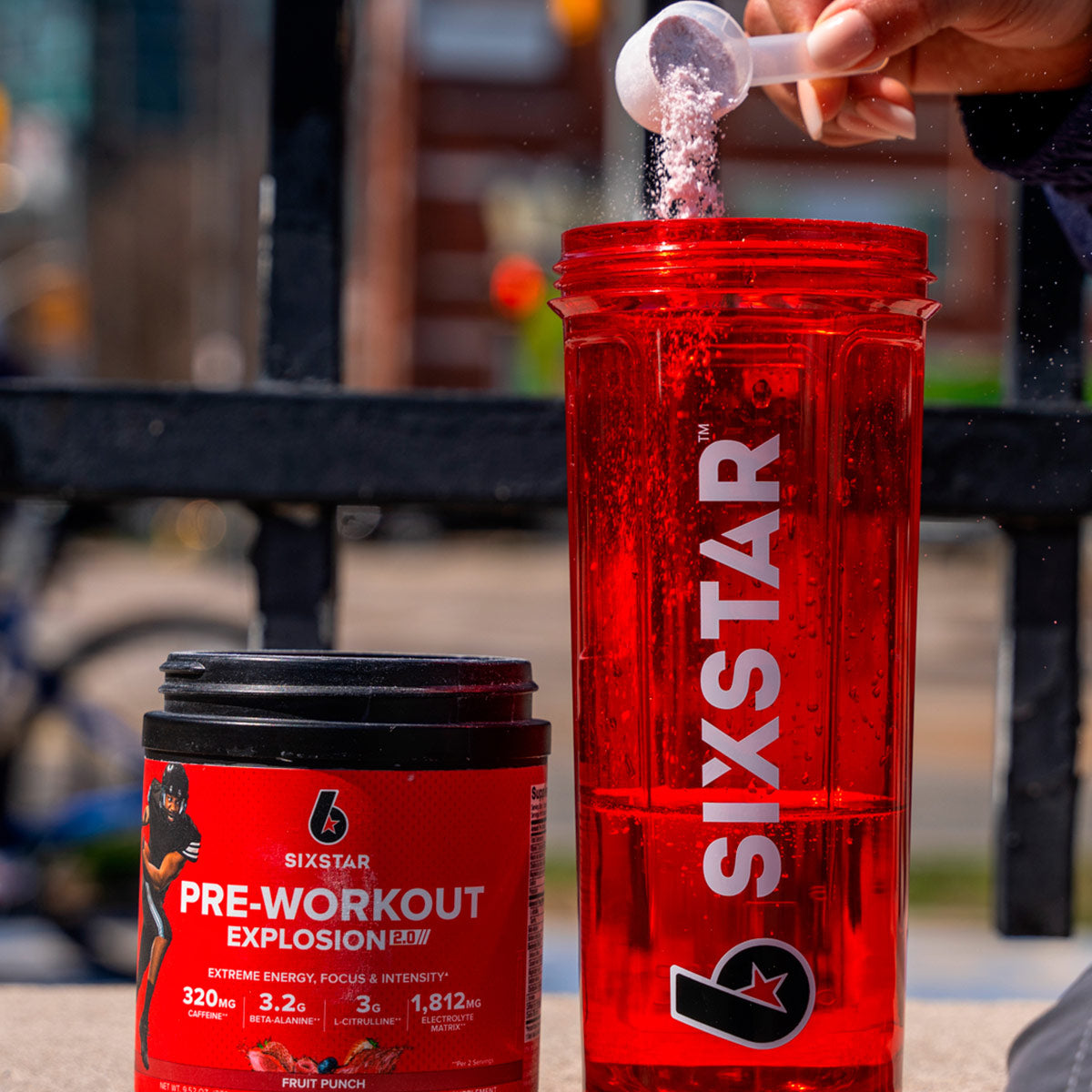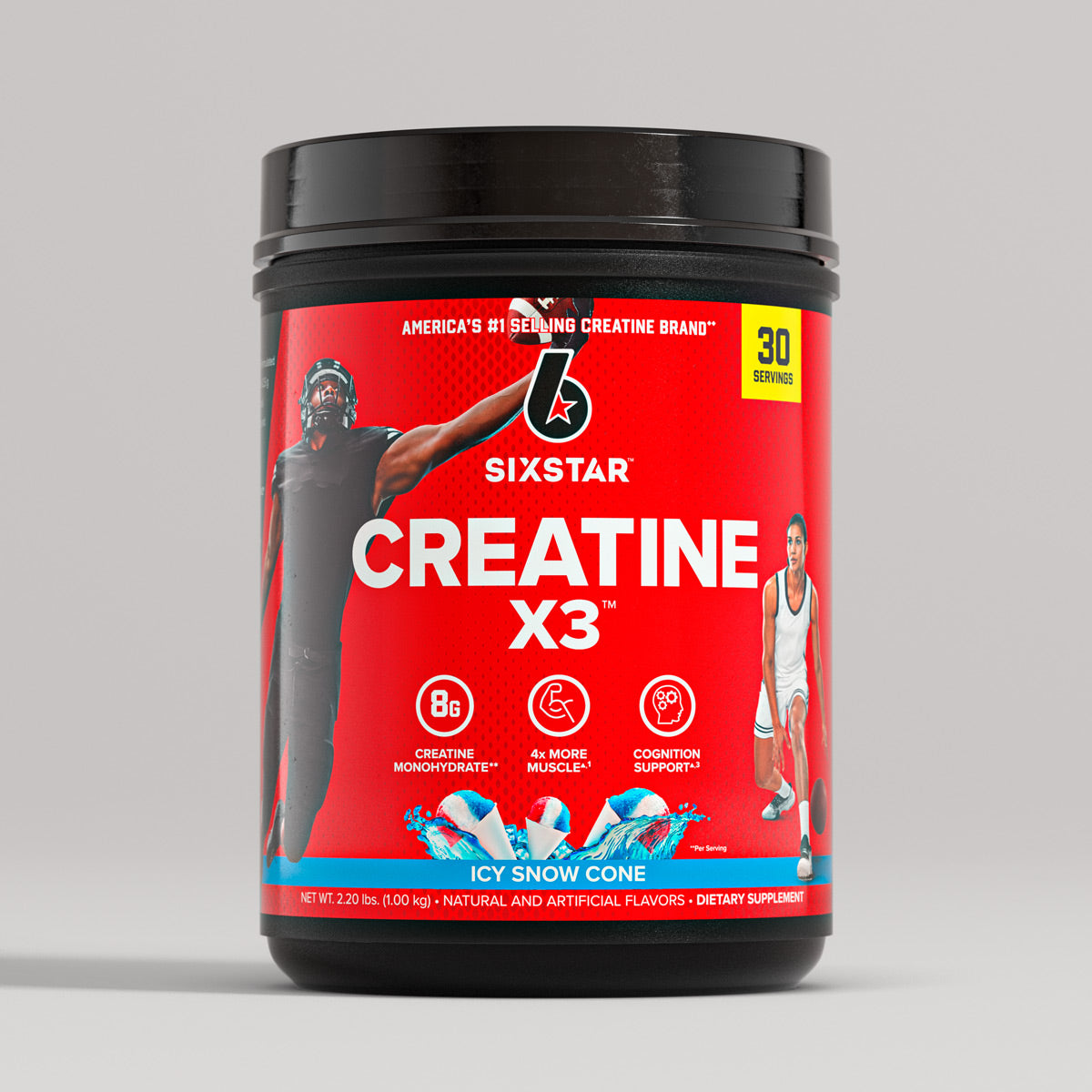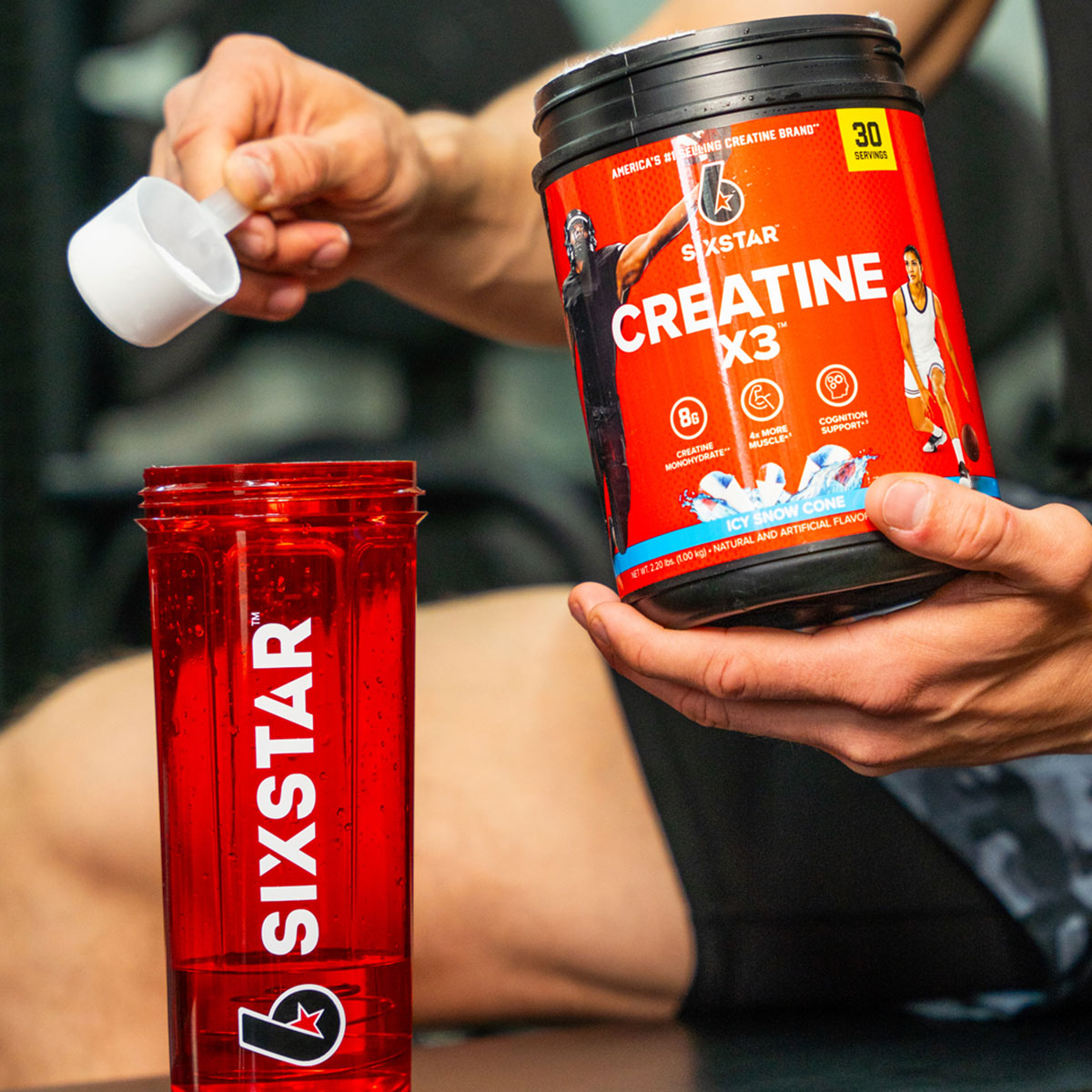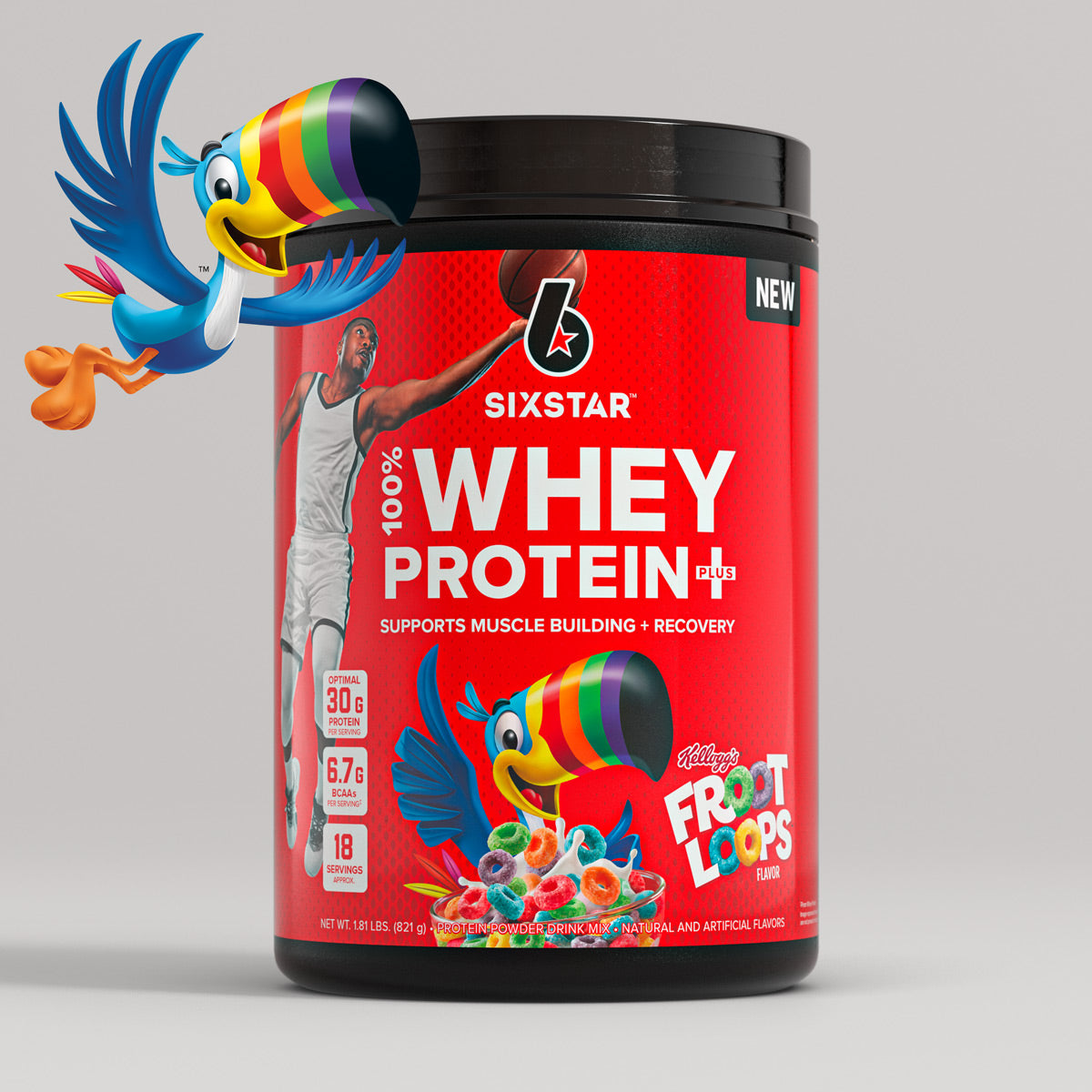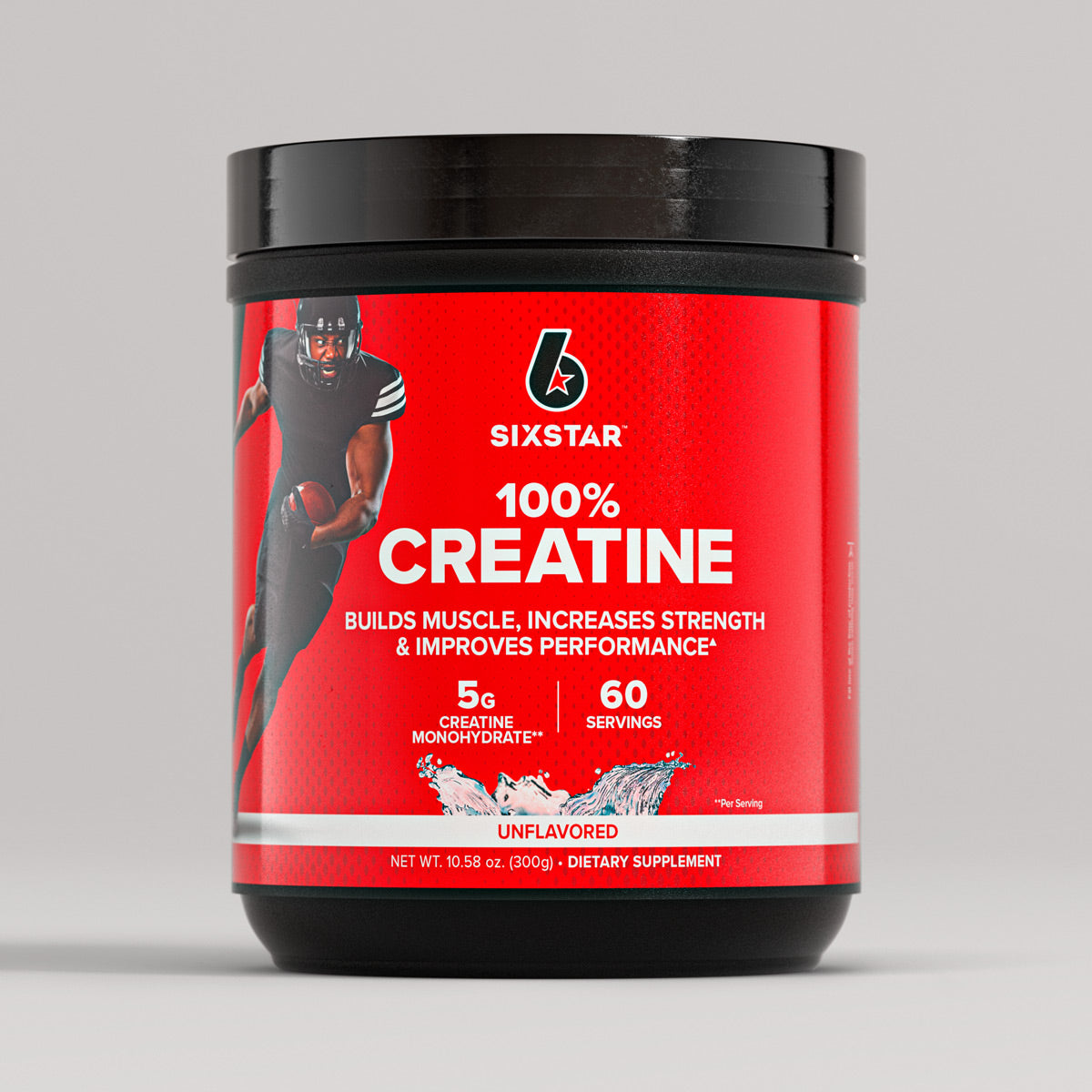As an athlete, have you ever wondered what fuels your powerful sprints, heavy lifts, or endurance runs?
It is true that carbohydrates and fats play major roles, but protein is the undeniable highlight when it comes to an athlete's nutrition.
At its foundation, protein is made up of amino acids, often called the 'building blocks' of the body. These amino acids are like the nuts and bolts of your body that holds everything together.
They're involved in almost every cell function, ensuring your muscles repair and grow, your energy levels remain steady, and your immune system stays effective.
While your body can produce many of these amino acids, there are nine 'essential' ones you must obtain from your diet. As athletes, the quality and quantity of the protein you consume can deeply influence your performance and recovery.
Protein can come in different forms, each of which can be beneficial for different athletes. If you are wondering how protein can help you become the best athlete you can be, as well as what kind of protein is right for you, then you have come to the right place.
Sources of Protein: Animal-based vs. Plant-based
Now, where can you get this vital nutrient? Protein sources are vast and varied. On one hand, you have animal-based sources like meat, poultry, fish, eggs, and dairy. These are often complete proteins, meaning they contain all the essential amino acids your body needs.
On the other side, we have plant-based proteins from legumes, grains, nuts, seeds, and certain vegetables. While many plant sources may not always be 'complete', by combining foods like beans and rice or hummus and whole grain bread, you can ensure you're getting the full spectrum of essential amino acids.
Plant-based protein sources also come with added benefits like fiber, antioxidants, and other health-promoting compounds. Perfect for those athletes who are vegans, vegetarians, or simply going for a more plant-forward diet.
Also Read: Best Protein Supplements for Women
Protein's Role in Your Athletic Performance
It takes a lot to be a great athlete. It takes a strong training plan and endless hours practicing your skill, but did you know that your diet is just as important to your athletic performance as the hours you spend in the gym?
Ensuring you have an adequate protein supply can help ensure you get the most out of your training sessions by helping you in the following areas:
1. Muscle Recovery and Growth
If you're a runner pushing past the last mile or a weightlifter going for that new PR, your muscles undergo wear and tear. Protein steps in as the repair agent. Post-exercise, your muscles act like sponges, eager to absorb nutrients, and protein provides the essential amino acids to rebuild and strengthen these fibers.
Shop & Save on Pre-Workout Supplements
This process not only facilitates recovery but also promotes muscle growth. Ever wonder why pro athletes swear by a protein shake post-workout? It's to kickstart this very process!
2. Endurance
Endurance athletes, this one's for you! While carbs are rightfully seen as the primary fuel for longer reps of exercise, protein plays a more subtle yet significant role. Consuming protein can help minimize muscle damage during prolonged activities.
Also, for ultra-endurance events, where carbohydrate stores can deplete, protein can provide up to 5-10% of energy needs. So, next time you're packing snacks for a long run or ride, consider those with a protein punch.
Also Read: Benefits of Pull-Ups - All the Hidden Secrets Unveiled
3. Strength and Power
Protein isn't just about recovery; it's also about power. For athletes focusing on strength training, adequate protein intake is utmost important. It supports muscle hypertrophy, short for growth in muscle size, which directly correlates with increased strength and power.
So, if you're looking to improve those deadlifts, squats, or bench presses, ensuring sufficient protein in your diet is non-negotiable for you.
4. Other Benefits
Beyond these, protein also helps in maintaining fluid and electrolyte balance, helps in transporting oxygen to muscles, and supports a healthy immune system – essential for athletes like you to remain in peak condition and ward off illnesses that could hamper your training.
Shop Electrolytes for Athletes
Specialty Proteins for Your Athletic Needs
The right protein can make all the difference in recovery and performance, so let's break down the facts.
Whey vs. Casein:
At first glance, both whey and casein originate from dairy, making them seem like two sides of the same coin. But they’re more like siblings, each with its own strengths.
Whey Protein is often heralded as the king of post-workout proteins. It's a "fast-acting" protein, meaning it's rapidly digested and gets to work quickly, supplying your muscles with the essential amino acids they need after a strenuous workout.
If you’re someone looking for a quick recovery boost right after your session, whey might just be your go-to.
On the other hand, Casein Protein is the "slow and steady" counterpart. It takes its time to digest, providing a steady release of amino acids over a longer period. This makes it an ideal choice before bedtime or during any prolonged period when you won’t be eating.
It acts like a guardian, ensuring your muscles receive a consistent protein supply as they repair overnight. SIXSTAR has a long-standing reputation in curating the best workout proteins with high-quality ingredients and scientific approval. It can be your best bet when it comes to protein.
Also Read: Drinking Protein Shake Before Bed
BCAAs and EAAs
BCAAs, or Branched-Chain Amino Acids, are a trio of essential amino acids: leucine, isoleucine, and valine. They're unique because they're primarily metabolized in our muscles, not the liver. This means they play a key role in muscle energy during exercise.
So whenever you’re sprinting, lifting, or jumping, BCAAs are the behind-the-scenes stars working to fuel and preserve your muscles. Protein powder such as Six Stars Whey Protein + includes added BCAAs to ensure your muscles are functioning at their best.
But, you can’t overlook the EAAs, or Essential Amino Acids. These are the amino acids our bodies can't produce on their own, meaning they must be sourced from your diets or supplements.
For athletes, ensuring a sufficient intake of all EAAs is essential. They play a multifaceted role, from muscle repair to energy production. When we talk about a complete protein source, we're referring to proteins that provide all the EAAs in the right proportions.
Quality Over Quantity: Choosing the Right Protein Sources
Amino Acid Profiles Do Matter
First up, let's talk amino acids, often called as the 'building blocks' of proteins. But why are they so crucial? Our bodies require 20 different amino acids to function properly.
Out of these, 9 are considered "essential," which means our bodies can't produce them on their own and we must get them from our diet. The remaining 11 are "non-essential" because our bodies can produce them under normal circumstances.
Now, here's where the choice of protein becomes vital for you athletes. A protein source that provides all 9 essential amino acids in adequate amounts is termed a "complete protein." Most animal-based proteins are complete. On the other hand, many plant-based sources might lack one or more essential amino acids.
Either way, it can be difficult to cook and consume enough of these whole foods to meet your athletic needs. Incorporating protein supplements like Six Star whey protein + into your daily routine can help ensure your body always has what it needs.
The takeaway? It's not just about how much protein you're consuming, but the quality and composition of that protein. This knowledge helps in planning balanced meals, especially if you're targeting muscle repair, growth, or endurance.
Focus on Bioavailability to Make Every Bite Count
Now onto another concept that's equally crucial is that of bioavailability. We discussed it earlier, but it makes sense to give this concept a focused explanation.
In simple terms, bioavailability refers to the portion of protein that your body can actually utilize vs what you consume. Think of it this way: you wouldn't pour water into a bottle with a hole in it, right? Similarly, there's no point in consuming protein if your body can't make effective use of it.
Different protein sources have different bioavailability rates. For instance, whey protein is quickly absorbed, making it a favorite for post-workout recovery. On the other hand, casein protein is slowly digested, providing a steady stream of amino acids, which can be ideal for nighttime recovery.
Moreover, factors like how the food is prepared and what it's paired with can also influence bioavailability. Cooking, fermenting, or sprouting certain plant-based proteins can enhance their bioavailability.
So, the mantra here is clear: It's not just about consuming absurd amounts of protein but ensuring that it's the kind your body can efficiently process and use. After all, you're in it for peak performance, and that requires giving your bodies the best of the best.
Save on our Gameday Supplement Stack
Common Mistakes Athletes Make With Protein
1. Assuming More Protein is Always Better
Some athletes believe that consuming very high amounts of protein will result in increased muscle mass. But that's not true at all, the body has a limit to how much protein it can effectively use for muscle protein synthesis at a given time. Excess protein can be converted to energy or stored as fat.
2. Not Considering Protein Quality
All proteins are not created equal or the same. Proteins are made of amino acids, and certain sources might not provide all the essential amino acids in the right quantities. For example, many plant-based proteins might lack one or more essential amino acid, so combining protein sources becomes crucial.
3. Neglecting Carbohydrates
While protein is essential for recovery and muscle building, carbohydrates are the body's primary energy source. Especially for endurance athletes, skipping on carbs to make room for more protein can hinder performance.
4. Misunderstanding Protein Needs based on Activity Level
Different athletic activities require different protein intakes. A weightlifter may have different protein needs compared to a long-distance runner or a yoga instructor. Understanding specific needs based on training can help you understand and adjust your intake.
5. Relying on Protein Bars for Quick Snacks
Yes, bars are convenient but many protein bars on the market are packed with sugars, unhealthy fats, and other additives. They might not always be the healthiest choice for a protein boost.
Protein powders are typically a great way to ensure you are getting mainly protein without the added fats and sugars.
6. Overlooking Hydration
Higher protein intake can increase the body's need for hydration. Failing to up water intake alongside protein can lead to dehydration, which will impede your athletic performance and recovery.
7. Ignoring Digestive Health
A sudden increase in protein, especially from sources that your body isn't accustomed to, can lead to digestive issues. You should always slowly increase your protein intake and be aware of how different sources affect their digestion.
8. Failing to Read Supplement Labels
Not every protein supplement is clean or free from additives and fillers. You should ensure you're choosing high-quality products that meet your dietary and performance needs.
Are You all Good to Pick up a Bottle of Protein?
Although the athletic world is full of advice, recommendations, and sometimes even myths about protein, it's important that you approach protein intake with a balanced mindset. Rely on whole foods, appreciate the benefits they bring, and be mindful of when you're fuelling your body with this essential macronutrient.
Take consideration of when you may need to supplement protein, while also looking at the different types and benefits protein supplements can provide as you make your decision on which powder is best for you.
Remember, it's not just about working hard; it's about working smart. And smart nutrition is a cornerstone of athletic excellence.
Buy SIXSTAR Nutritional Supplements
Read Blogs that People Love:
- What is the Best Creatine for Athletes?
- Is Creatine Good for Runners?
- Pre-Workout for Beginners – All You Need to Know?
- Creatine Before or After a Workout - What is Ideal?
- How Long Does It Take for Creatine to Work?

